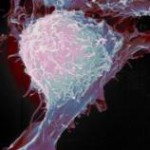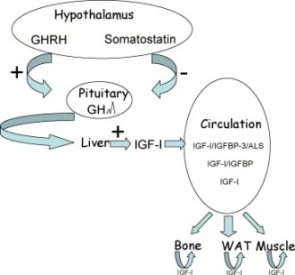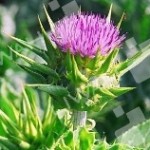Melatonin, the so-called sleep hormone, is a molecule secreted by the pineal gland – a pea-sized gland located just above the middle of the brain. During the day the pineal is inactive. When the sun goes down and absolute darkness occurs, the pineal is “turned on” and begins to actively produce melatonin, which is released into the blood. Thus, serum melatonin levels have been found to be high at night (80–120pg/ml) and low during the day (2–20pg/ml).
The pattern of waking during the day when it is light and sleeping at night when it is dark is a natural part of human life. Only recently have scientists begun to understand the alternating cycle of sleep and waking, and how it is related to daylight and darkness.
In addition to its well-known regulatory …
The protein AMPK (AMP-activated protein kinase) is a key player in regulating cell growth and metabolism. It is emerging as an important modulator of energy metabolism in cancer cells and thereby regulating their growth. AMPK is a fuel sensing enzyme (cellular fuel-gauge) that is activated by hormones, cytokines, exercise, and stresses that diminish cellular energy state (e.g., glucose deprivation).
AMPK is activated during periods of stress conditions such as hypoxia (low oxygen supply to a tissue), ischemia (reduction in blood flow to a tissue) where the intracellular AMP level or the ratio of AMP to ATP is increased. It shifts the metabolism of cells from an anabolic to a catabolic state in order to maintain their survival. This means that the synthesis of cholesterol, fatty acids and triglycerides, cell cycle inhibition, …
 Prostate cancer originates from a rare subpopulation of cells, namely prostate cancer stem cells. Cancer stem cells (CSCs), a small population of cells in the tumor (less than 1%), play a significant role in the development and recurrence of several cancers. These cells have a substantial characteristic of stem cells ability for self-renewal without loss of proliferation capacity with each cell division. Furthermore they are immortal, rather resistant to treatment and express typical markers of stem cells. The origin of these resident CSCs is not clear.
Prostate cancer originates from a rare subpopulation of cells, namely prostate cancer stem cells. Cancer stem cells (CSCs), a small population of cells in the tumor (less than 1%), play a significant role in the development and recurrence of several cancers. These cells have a substantial characteristic of stem cells ability for self-renewal without loss of proliferation capacity with each cell division. Furthermore they are immortal, rather resistant to treatment and express typical markers of stem cells. The origin of these resident CSCs is not clear.
Conventional therapies for prostate cancer are believed to mainly target the majority of differentiated tumor cells but left these CSCs untouched. It causes relapses in the cancer by producing new chemo-resistant cancer cells. …
The normal development and maintenance of the prostate is dependent on androgen acting through the androgen receptor (AR). In the normal prostate, the rate of cell death is 1–2% per day, and replaced with new ones. This activity is part of normal prostate function and is regulated by AR. Thus, maintaining natural balance in the function of AR is a key to prostate health.
AR exists as a phosphoprotein and its function is tightly regulated. When testosterone or DHT is present, it binds to complex, which causes to dissociate from heat shock protein (Hsp), binds to DNA at specific location. This forms ligand-dependent transcription factor, which can increase or decrease the regulation of gene.
Both androgen dependent and independent prostate cancers can be successfully treated with natural medicines. Prostate cancer cells depend primarily …
We now know that PSA (prostate specific antigen) is a serine protease produced by both prostate epithelial cells and prostate cancer. The serine proteases are a family of enzymes that cut certain peptide bonds in other proteins. Thus, PSA has enzymatic ability to degrade extracellular matrix (structural support) proteins such as fibronectin and laminin. This action of PSA may promote tumor growth, invasion and metastasis of prostate cancer.
 Another potential tumor-promoting action of PSA involves freeing insulin-like growth factor 1 (IGF-1) from its binding protein (BP-3), providing increased local levels of IGF-1 and leading to tumor growth. IGF-1, generally secreted by the liver as a result of stimulation by growth hormone (GH), is important in both …
Another potential tumor-promoting action of PSA involves freeing insulin-like growth factor 1 (IGF-1) from its binding protein (BP-3), providing increased local levels of IGF-1 and leading to tumor growth. IGF-1, generally secreted by the liver as a result of stimulation by growth hormone (GH), is important in both …
As discussed in part three on prostate cancer, telomerase and telomeres are attractive targets for anticancer therapy. Tumors have relatively shorter telomeres compared to normal cell types. But, in cancer cells an enzyme called telomerase keeps rebuilding the telomeres, and the cancer cells go on dividing without control and are able to invade other tissues. Telomerase is active in most human cancers and over 90% of prostate cancers express telomerase activity. Telomerase inhibitors induce telomere shortening in cancer cells and cessation of unrestrained proliferation. Silibinin, an active constituent of milk thistle, can also inhibit the telomerase activity.
 In addition, Silibinin can also kill prostate cancer cells directly and restrict tumors’ ability to grow the new blood vessels through multiple mechanisms. It …
In addition, Silibinin can also kill prostate cancer cells directly and restrict tumors’ ability to grow the new blood vessels through multiple mechanisms. It …